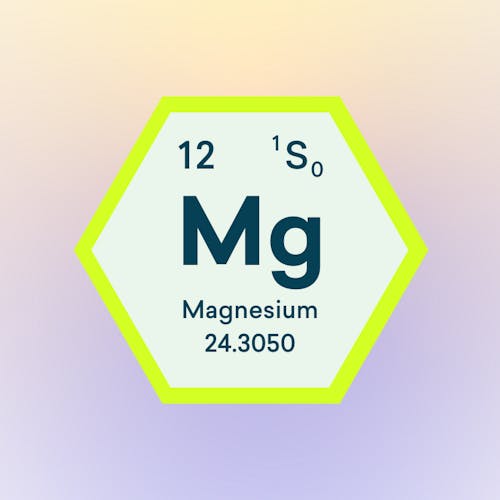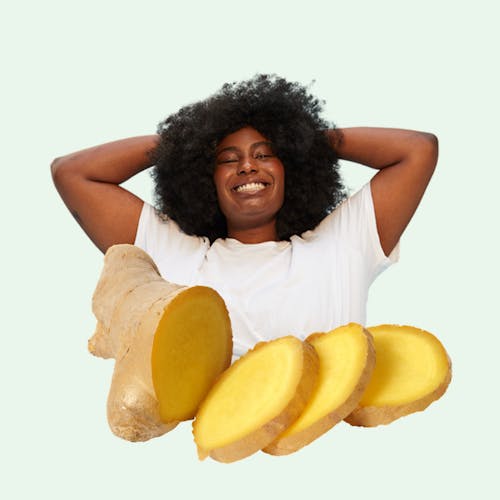This website uses cookies to enhance the user experience. By using Yoppie you are agreeing to our use of cookies.
Menstrual Cycle Nutrition: What To Eat On (And Off) Your Period
Written by Yoppie
15 Mar 2021
Why eat according to your menstrual cycle?
What to eat during…
The Menstrual Phase
The Follicular Phase
The Ovulation Phase
The Luteal Phase
Have you ever tried eating according to your period? If this has never occurred to you, don’t worry. Mostly people make food choices based on taste and convenience, and it can be tough to plan ahead for meals at the best of times. However, if you can factor in some nutritious foods that support each stage of your cycle, you may find there are some unexpected and welcome benefits. Here’s what you need to know:
Why eat according to your menstrual cycle?
What we eat impacts everything from physical health to mood to weight and more, so it’s no surprise that it also has a huge impact on our cycle. This happens because, throughout the month, different levels of hormones like oestrogen, progesterone, and testosterone are affected by the food we eat. Just as these can be thrown off-balance by certain foods, they can also be supported by others.
As a general rule, eating whole foods can benefit you throughout your cycle to help keep hormones balanced. Not leaving too long between meals and avoiding high sugar foods will help manage blood sugar levels to avoid cortisol spikes that contribute to mood swings.
Bear in mind that during specific phases of your cycle, your diet may be driven by cravings, or you may not wish to restrict yourself so much, and that’s absolutely fine! We’re not about promoting fad diets, but offering a few nutritional tips that could help reduce negative symptoms and promote a better physical, mental and emotional balance during your cycle.
What to eat during…
The Menstrual Phase
The Menstrual phase is the easiest to pick out, as it’s when you’re actually bleeding, and oestrogen and progesterone reduce to their lowest levels. It’s a good idea to eat whole foods, and limit things like sugar, alcohol and caffeine throughout your entire cycle as they can trigger hormone imbalances, but this is most important during your period. Unfortunately this is also when we crave certain foods, so don’t feel you have to restrict yourself too much - everything in moderation!
During this phase, you may want to limit your intake of fatty and salty foods, and drink herbal tea like chamomile to soothe cramps. Depending on how heavy your flow is, you may also benefit from increasing your iron intake around this time. It is believed that around 1mg of iron is lost for every day of bleeding, so adding foods like red meat, spinach and other dark leafy greens could help.
If you are particularly worried about low iron leading to anemia, introducing foods that contain vitamin C can help with iron absorption. Add foods like oranges, red and green peppers, pineapple, strawberries, broccoli and mango to up your vit C.
The Follicular Phase
This phase is when oestrogen levels start to rise again to prepare eggs for the Ovulation phase, which is right around the corner. Your body may conserve its carbohydrate stores, but it will also have an increased ability to burn fat. Energy increases, and your body is actually more receptive to activities like strength training, so it’s a great time to focus on fitness.
As such, your body may need more carbohydrates during this phase… bring on the carbs! Of course, with carbs you should also be getting a regular intake of proteins, and it doesn’t hurt to stay on the iron and vit C train to replenish levels that may have been lost during your period. It can also be helpful to incorporate sprouted and fermented foods that metabolise oestrogen, like broccoli sprouts and kimchi.
There’s a lot to think about in this phase, but there are a few foods that can help with the above, like oatmeal, soybeans, lentils, poultry, peppers and oranges.
The Ovulation Phase
The Ovulation phase is when your oestrogen levels reach their peak and start to balance out again when your body releases an egg. With high oestrogen, you will want to eat foods that support your liver, as these offer health benefits that can protect against environmental toxins known to impact hormones. Anti-inflammatory foods such as whole fruits, vegetables, and almonds will do the trick.
This is the part of your cycle when you are most fertile, so if you are looking to encourage a pregnancy during this time, there are a few things you can look to add to your diet that are thought to help with this. One study of 232 women found that higher folate intake was associated with higher rates of implantation, so adding more of those leafy green veggies, and peas, kidney beans and breakfast cereals fortified with folic acid could help.
Foods with high antioxidants are also thought to benefit this, and while the evidence isn’t conclusive, you may wish to add foods with more vitamins C and E, beta carotene, and lutein to your diet during this time.
The Luteal Phase
This phase is when progesterone starts to rise in the lead up to your next period, and it is thought that eating foods that produce serotonin will help most during this time, like quinoa and buckwheat. Also useful is adding more healthy fats to your diet, so try to include things like avocados, nuts and fish where possible.
It is understood that eating magnesium-rich foods can help fight the fatigue and low libido associated with this time in your cycle. Add foods like spinach and pumpkin seeds to your diet, and *cue the trumpets* dark chocolate!
The luteal phase is the time before your period when you will benefit from eating healthily and steering clear of foods that can trigger period cramps, so this is the best time to avoid caffeine, alcohol, added salt, and carbonated drinks.
Got a question about what foods to eat throughout your menstrual cycle? Shout out in our private Facebook group or drop us a note on Insta @itsyoppie. Don't forget that our personalised period box can get organic tampons, PMS supplements and more delivered easily and regularly through your letterbox, which is a huge load off in terms of things to think about each month.
Fact-checked by nutritionist Shona Wilkinson.
Section jump
Back to top
Subscribe To Our Newsletter
YOPPIE





© 2026 Yoppie is a registered trademark of Phlo Technologies Ltd.
Yoppie's supplements are not a substitute for a varied diet and healthy lifestyle and are not intended to diagnose, treat, or cure any disease. If you are pregnant, breastfeeding, have a medical condition or are under medical supervision, please consult with your doctor before taking any of our products.






